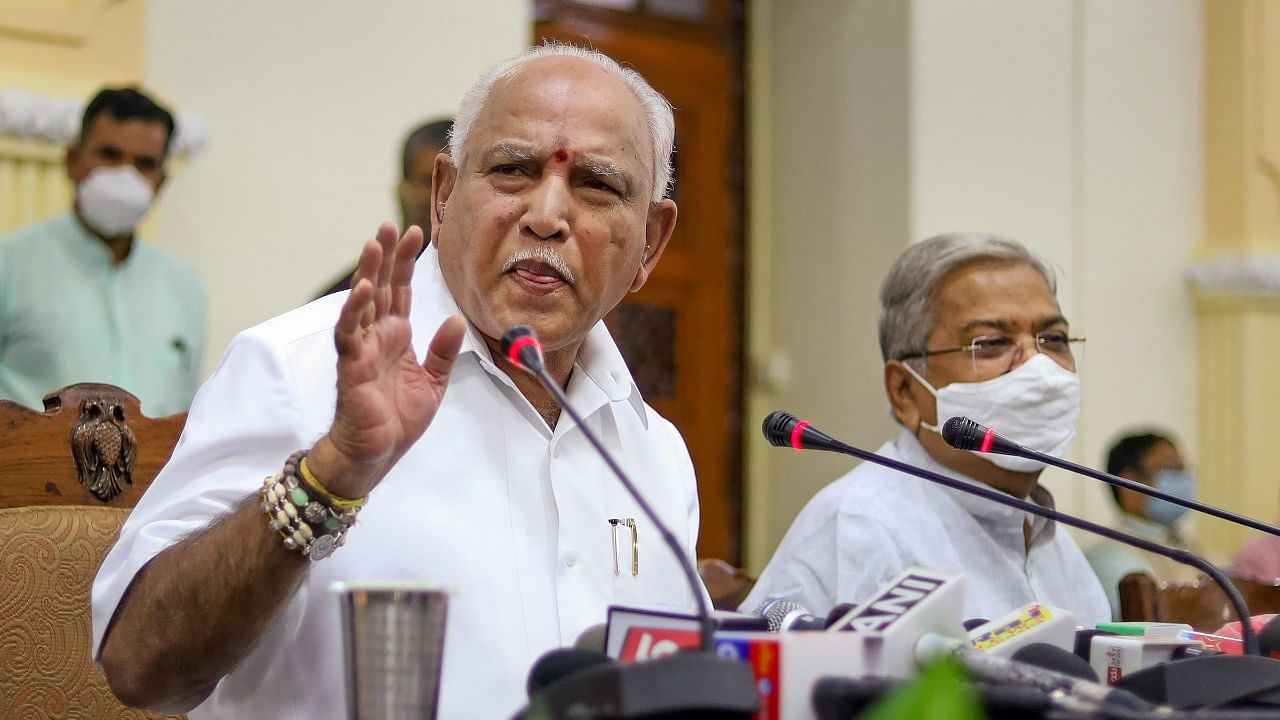
Come March 8, Chief Minister B S Yediyurappa will present his eighth budget - arguably one of his toughest, due to the challenges staring at the state in the post-pandemic era.
Dwindling revenues of the government and an increase in liabilities will be staring Yediyurappa in the face, which according to experts, will force him to focus on fiscal consolidation and rationalisation of expenditure. The first priority of the budget should be to bounce the economy back to 2019-20 levels.
Though the CM has promised that the budget will be “a good one,” all fiscal indicators point at the challenge to even reach this modest target set by him.
For instance, Karnataka’s own tax revenue -- which is the government’s biggest source of income -- will be less by Rs 35,000 crore. In all, the government’s total receipts will be shy of a whopping Rs 63,753 crore compared to 2020-21 budget estimates.
Karnataka was forced to borrow over Rs 80,000 crore during the year, after the Centre raised the borrowing limit from 3% of Gross State Domestic Product (GSDP) to 5%, to finance the lockdown induced revenue shortfall.
Though Centre has assured to repay, the state was also forced to borrow around Rs 11,000 crore - eligible to be paid by the Centre as GST compensation.
Speaking to DH, Madhusudhan B V Rao, senior research advisor, Centre for Budget and Policy Studies, Bengaluru, said that Karnataka was likely to suffer from lack of funds unless there was a big increase in tax collection.
“There is not much room for fiscal manoeuvring in the budget. Any tweak in excise tax on petrol or diesel will result in a huge outrage and the CM too will not be comfortable to raise fuel prices at this juncture,” he said.
Ahead of the budget, the Karnataka State Policy and Planning Commission has advised clubbing various schemes - which are similar - to rationalise costs.
Sources in the Finance Department (FD) project a reduction of at least 10% in budget size.
“However, since budget announcements are just estimates, it is possible that the CM will try and meet the budget size of last year or slightly increase it,” sources said.
The CM is under pressure to not only kickstart the economy, but also complete development works, especially irrigation that took a beating due to the Covid-19 pandemic.
Having handled the Finance portfolio in the past, Yediyurappa has already sounded an alert that the Covid-19 induced stress on the economy would likely continue. The Finance Department has asked all departments to keep their budget proposals basic.
Madhusudhan stressed on initiatives to increase non-tax revenue, noting that concrete measures were essential in that direction.
“The only thing that could be looked into for the state to improve its revenue stream is non-tax revenue - such as increase in user charges for water supply and others,” he said.
Noting that non-tax revenue of the government was meagre, he said measures were required to increase it to the levels commensurate with tax revenue. “This will help revive the struggling economy,” he said.
Sources in the FD also highlighted the increase in committed expenditure such as salaries, pensions, interest payments and others, which has touched 88% last year, allowing only 12% of the state revenue to be spent on welfare schemes.
“As committed expenditure is bound to surge this year, announcement of new projects and allocating funds for them will be highly difficult,” sources said.
